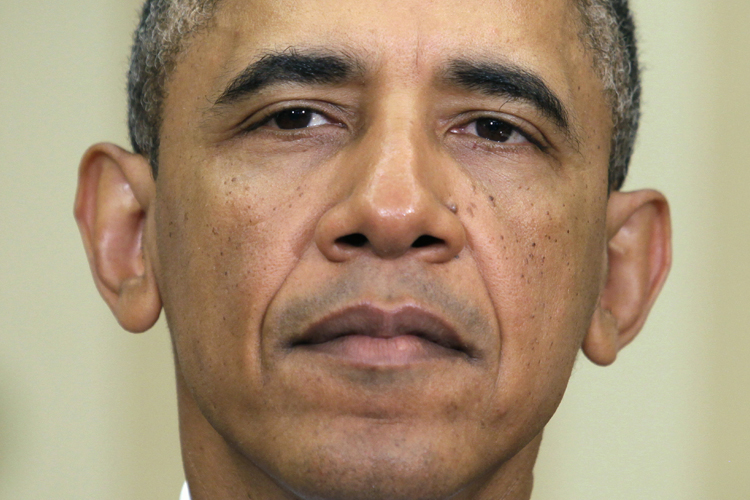A few months ago, all anyone could talk about were the cancellation letters. Average Americans were receiving letters from their health insurers informing them that their coverage had been scrapped because of Obamacare, and they would be automatically enrolled in a new, far more expensive plan. The press, egged on by eager Republican operatives, ate it up – Obamacare, the controversial law upon which the president’s legacy rested, had failed in its promise to lower healthcare costs.
The controversy was premised on the notion that health insurance companies were acting in good faith, and without self-interest. If they were raising rates, it was because they had to, and not simply because they could. And, as it turns out, the insurance companies were lying. Or at least omitting the truth. They were trying to squeeze what they could out of their customers, trusting that they would not shop the Obamacare marketplace for better deals.
The episode offered a fine lesson for the press: when it comes to Obamacare, don’t take health insurers at their word. That lesson has been ignored, and yet another Obamacare doom-and-gloom story is picking up steam.
“O-Care Premiums To Skyrocket,” blared the headline at The Hill’s Healthwatch blog. Leaning on anonymous insurance company officials (and one former insurance executive’s “gut” feeling), The Hill reported that “ObamaCare-related premiums will double in some parts of the country, countering claims recently made by the administration.”
That sounds pretty bad. But when you dig down just a little deeper, a different picture emerges. Despite the misgivings of anonymous insurance officials, the truth is that nobody in the insurance industry knows for certain how Obamacare will affect premiums in the coming year. The open enrollment period hasn’t ended yet, and insurers don’t yet know how many people have enrolled for coverage through the program, what their ages are, or how healthy they are. “Young people need to enroll in sufficient numbers to produce a surplus in premium revenues that can be used to cross-subsidize the deficit created by the enrollment of older people,” explains the Kaiser Family Foundation. “If that does not occur, premium revenues will fall short of expenses and insurers may seek to raise premiums the following year.”
These data will vary from market to market, from state to state. The risk of premium spikes is real, but only in certain markets. “A key factor will be the level of competition,” writes Jonathan Cohn. “In areas with many companies vying for business, insurers are likely to keep rates low for the same reason they have so far: They won’t want to lose customers. But in rural areas and states where one insurer predominates, carriers will have more leeway to raise prices—and some are likely to use it.”
Moreover, the writers of the law anticipated the inequitable distribution of sick and healthy enrollees and built in a few shock absorbers. If an insurer finds itself with a surplus of older, sicker enrollees in a given market, then its losses will be covered in part by insurers who are profiting from a surplus of younger, healthier enrollees. The system was designed to protect against “skyrocketing” premiums.
All of this nuance and complexity falls to the wayside, however, when you have a conservative media that doesn’t give a shit about how insurance markets actually work. An anonymous person said premiums will double! The Hill put “skyrocket” in the headline! Obamacare is, therefore, doomed once again. With Republicans pushing Obamacare as their big 2014 issue, it’s easy to see how the handwringing of a couple of unnamed insurance executives suddenly becomes a narrative.
And therein lies a lesson for Democrats. Lacking an actual substantive policy agenda, Republicans desperately want Obamacare to be seen as an unqualified political liability. The obsessive coverage of the Obamacare “cancellation letters” demonstrated the eagerness of reporters to seize on Obamacare horror stories. Those two factors make it extremely likely that stories about “skyrocketing” insurance premiums, thin as they are, will spiral out of control. Without a strong countermanding push to highlight the ways in which the law is lowering health care costs, there’s nothing to prevent the idea that Obamacare is a political millstone from hardening into conventional wisdom.
The politics of Obamacare aren’t great, but ceding the argument to the opposition certainly won’t make them better.


